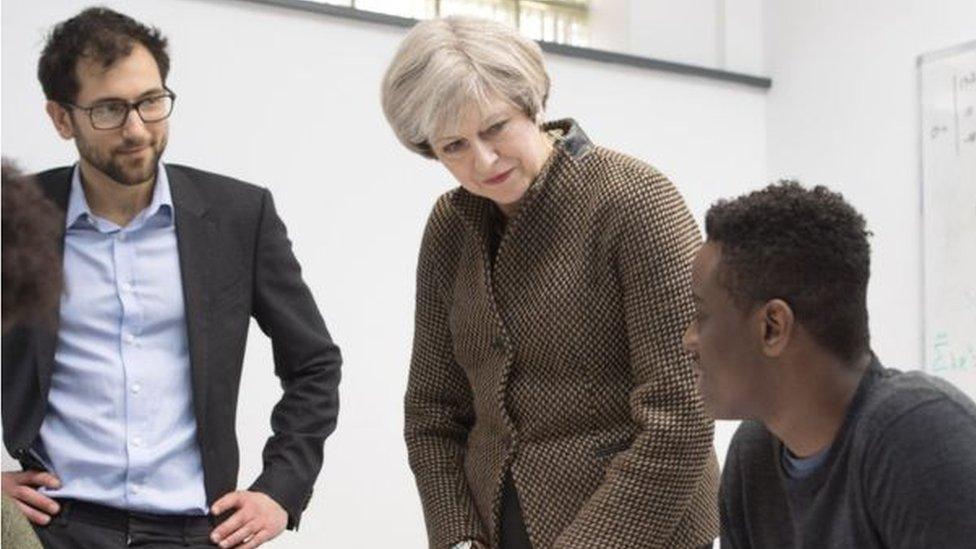Opposition MPs join forces to oppose grammar schools
- Published

A powerful new cross-party campaign is threatening to derail Theresa May's plans to expand the number of grammar schools in England.
Former Conservative Education Secretary Nicky Morgan is joining forces with Lib Dem ex-Deputy PM Nick Clegg and Labour ex-shadow education minister Lucy Powell to oppose the proposals.
Mrs Morgan says the priority should be to make all schools good.
But Mrs May says her "personal mission" is to increase diversity in schools.
In a joint article in the Observer, Mrs Morgan, Mr Clegg and Ms Powell argue that creating new grammar schools will do nothing to promote social mobility - and warn there is no room for more "division or political ideology" in the education system.
"We must rise to the challenge with a new national mission to boost education and social mobility for all," they write.
"That's why we are putting aside what we disagree on, to come together and to build a cross-party consensus in favour of what works for our children, and not what sounds good to politicians."
Mrs Morgan, who was education secretary from 2014 until she was sacked by Mrs May when she became prime minister in 2016, said her experience had shown that the focus needs to be on schools in areas of the country where educational under performance is entrenched.
"I don't think selection is the answer to that..." she told ITV's Robert Peston.
"I know from running a department there's only so much brain space to deliver reform and actually, if you are going to start moving your focus to selection and having a political battle about that, then you lose the focus on making all schools good."
Vulnerable?
The trio's intervention is likely to set alarm bells ringing in Downing Street after other influential Conservatives, including the chairman of the Commons education committee Neil Carmichael, also voiced opposition to the plan.
With a working majority of just 17, Mrs May's vulnerability to Tory revolts was underlined last week when Chancellor Philip Hammond was forced to back down over his Budget reforms to National Insurance contributions for self-employed workers following a backlash from the backbenches.
In their article, the three say that while grammar schools "can boost attainment for the already highly gifted, they do nothing for the majority of children who do not attend them.
"Indeed, in highly selective areas, children not in grammars do worse than their peers in non-selective areas."
Former Conservative Education Secretary Michael Gove said while he was not against selection per se, he would need to look at each individual proposition as it is put forward.
He told journalists at the Global Education and Skills Forum in Dubai: "I thought Nicky was a great education secretary and I think hers is a voice always worth listening to in the debate, but I take a slightly different position.
"I'm going to wait to see what the government brings forward but I think that the thing to do for someone like me is to say there's no merit in looking at this, or I won't look at this I should say, through any prism other than looking at what's proposed, looking at the evidence and considering each proposal on its merits."
But Labour's Stephen Kinnock warned against "tinkering around" with the education system, especially at a time when the country is divided over Brexit.
"What you need is an education system that lifts everybody - we know that making people take tests at the age of 11, which in many cases is far too early to see what their real potential is, is divisive," he told ITV's Peston on Sunday programme.